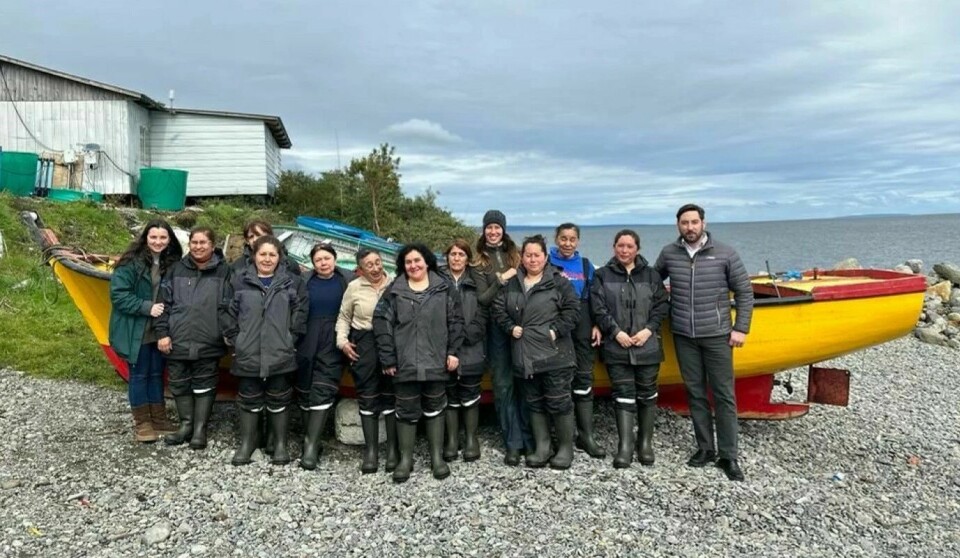
Chilean salmon farmer gives neighbours help with kelp
A salmon producer in Chile has temporarily handed over a farm concession to a start-up company and a women’s cooperative so that they can grow seaweed.
Huiro Regenerativo (Regenerative Kelp) and the Chaicas Women’s Union carried out a successful first sowing of huiro, the Spanish name for giant kelp (Macrocystis pyrifera) at a site licensed to Salmones Austral.
The Algae Project developed by Salmones Austral and Huiro Regenerativo seeks to train the salmon farmer’s neighbours and generate a source of income for them. Their product will be sold for the formulation of an organic bio-stimulant that is produced locally.
Huiro Regenerativo is a company formed by María José de la Fuente, a biologist at the Pontifical Catholic University of Chile (UC Chile), and Sebastián Gatica, executive director of Colab UC, which promotes initiatives that generate conditions of well-being and balance in natural and social ecosystems. The company manages the project.
Learning process
The group of 10 women who formed the union have begun the learning process with the idea of turning this project into a business, but this will be seen once the first harvest, which is expected to be successful, has been carried out.
If the business can be established, the aim is for the women to then farm seaweed in another area locally.
"The interesting thing about this project is that these algae are sold to a local producer who produces a bio-stimulant for the agricultural sector, so it would be very in line with our vision of working with communities, which is to generate a circular economy,” said Salmones Austral, which produced around 31,000 gutted weight tonnes of Atlantic salmon last year.
Environmental boost
It is increasingly common for salmon producers in Chile to also grow algae, which has a high impact both for the environmental sustainability of fish farming and for the development of the communities that participate in these projects.
An article published on the UC Chile website in September last year said seaweed is extremely rich in protein, vitamins, zinc and iron, and low in fat and carbohydrates.
It also:
- Removes large quantities of greenhouse gases from the atmosphere.
- Plays a key role in the fight against ocean pollution by cleaning the water of nitrates and phosphates.
- Can increase fish stocks by up to 20%.
The article said salmon companies are also interested in starting to develop a way to certify carbon sequestration and move towards carbon neutrality.























































